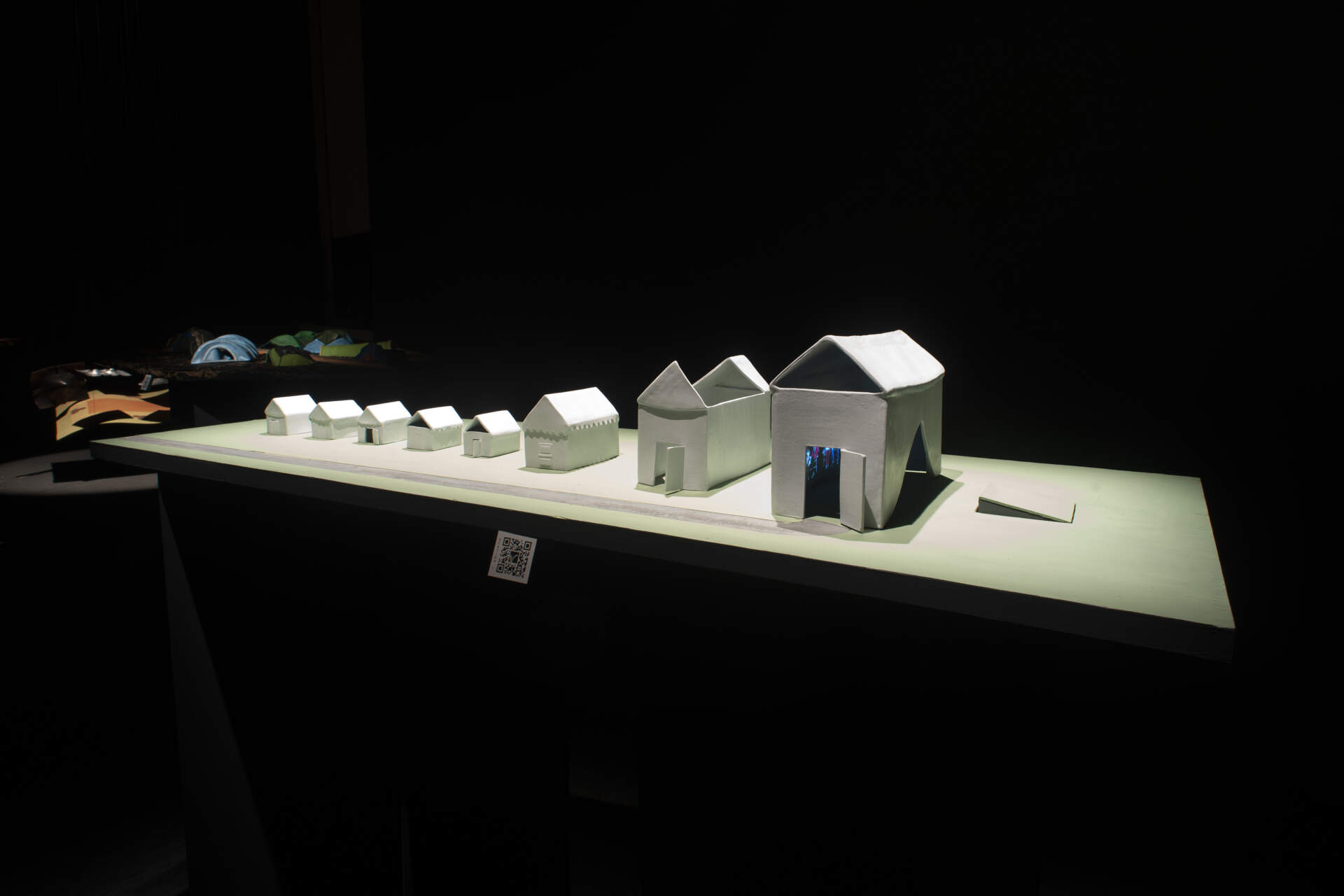Lisa Karrer (b. 1957)SHELTER Station 1
2020
Courtesy of the artist
Station 1 Ceramic Forms: Huge white industrial textile tents form “tent cities” for refugees in Germany and Greece, housing over a million displaced people who survived their perilous journeys.
Station1 Video Scenarios: https://vimeo.com/507688994
Featuring: Pamela Rose and Craig Mangus, Ellen Horst, Tom Owens, Gerald Ramsey, Maria and Tom Ta, Philip Knoerzer, Abdula, Ahalullah and Maryam Abdulghafar.
Baseera
Afghanistan / Language: Dari and English
Baseera speaks in English about her family life in Buffalo, and her own goals for the future.
**Please note: Baseera’s narratives continue at Station #3, Station #4 and Station #5
Jainarayan
Bhutan / Language: Nepali
(Jainarayan spent 17 years in a Nepali refugee camp)
The property of our ancestors in Bhutan had 14.5-acres of land. It was enough to have 8-10 cows and animals, and we didn’t have to take them to other fields. In our own field, we had enough grass to feed them, and fertilizer and water. We could farm anything and do anything in our field, whether growing oranges or cardamom. We had built a house (gara ghar) and lived together with our family. When father gave us duties and chores, we children all used to complete them.
Some of us worked for the government and some worked outside for money. Father and mother were farmers so they didn’t have money, whatever they earned was by farming. So if some children didn’t like working on the farm they would work for the government. And that’s how we lived in Bhutan. And when we fled to Nepal, we had no more land, no animals, no citizenship. We had nothing.
Originally I was a farmer, but to work for the government I didn’t have to have a high education. The Bhutanese had higher education then we did, so they were in higher positions and they used to dominate us. Not many of our people were educated, but they needed people to work, and so I also worked for the government. But in the end, even though we had government jobs, and citizenship, we were forced to leave the country.
I came to America with many dreams. I don’t know another way to change the world unless I am able to be active, and tell about the things that have happened to me in my life. Gathering these stories, I have thought about writing a book to teach children and elders about freedom, social values, behavior, and royal nationalism. But I have not been able to accomplish this because of the new technology of computers, and another thing, I have forgotten some of the knowledge I used to have. Perhaps, my suffering can touch not all, but someone’s heart in society.
Home for me is living in peace, and saving and protecting our community. I was born in Bhutan, and if only their society would understand our people, the birthplace and birth mother is considered to be greater than heaven. But we were forced to leave that country and that affected us a lot. Nevertheless, we have come to this place and we are living here peacefully. American love helps people like us, and I’m very happy, but my birthplace of Bhutan is always closest to my heart.
**Please note: Jainarayan’s narrative continues at Station #4
Yelda
Afghanistan / Language: Dari and English
Yelda speaks in English about her family life in Afghanistan, fleeing to Iran, and her new life in America.
**Please note: Yelda’s narrative continues at Station #3
Dee
Burma / Language: Karen
Houses are a part of us, because we need shelter when it’s raining. So without a house, where are we supposed to stay when it’s raining?
Before I left Burma, my house there was made of bamboo. There were ten family members in my home, including my parents. We were farmers and worked in the rice field, and also took care of Buffalos.
But then I lived at Mae La Refugee Camp in Thailand. The situation for us was a little better there, compared to Burma. We had a place to stay and we had food to eat.
We used to be farmers in Burma. I left Burma 10 years ago. I didn’t come directly to Mae La Refugee Camp. First I left my family and moved to Koe Se on my own, when I was 10 years old. Koe Se is a village in Burma, not in Thailand. I moved to Mae La Refugee Camp in Thailand in 2008, and I lived there for 10 years. I moved to Buffalo in 2018.
When I was younger, I never went to school, I had to babysit my young siblings. But then when I got a little bit older, I started farming and taking care of the Buffalo. I couldn’t go to school at Mae La Refugee Camp, but I started learning to read from the other children, when they came back from school to do their homework. I would watch them, and read and write along with them, and that’s how I learned.
